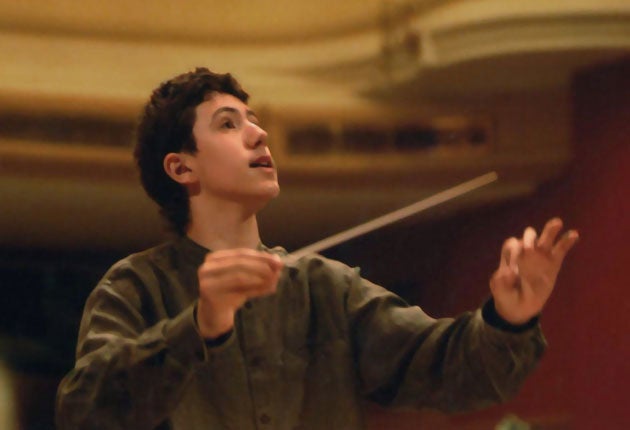Music has the power to shape a child's mind
Learning an instrument enhances the brain's sensitivity to all sounds, including speech, say researchers

Your support helps us to tell the story
From reproductive rights to climate change to Big Tech, The Independent is on the ground when the story is developing. Whether it's investigating the financials of Elon Musk's pro-Trump PAC or producing our latest documentary, 'The A Word', which shines a light on the American women fighting for reproductive rights, we know how important it is to parse out the facts from the messaging.
At such a critical moment in US history, we need reporters on the ground. Your donation allows us to keep sending journalists to speak to both sides of the story.
The Independent is trusted by Americans across the entire political spectrum. And unlike many other quality news outlets, we choose not to lock Americans out of our reporting and analysis with paywalls. We believe quality journalism should be available to everyone, paid for by those who can afford it.
Your support makes all the difference.Parents may not appreciate the screeching of violins and recorders during the hours of practice, but new evidence suggests music lessons help children improve their language skills. Scientists have discovered that playing an instrument significantly enhances the brain's sensitivity to speech.
Schools which fail to make music a core subject are making a mistake, because it has advantages for the growing brain and would help all children, including those with dyslexia and autism, neuroscientist Professor Nina Kraus said yesterday.
"Playing an instrument may help youngsters better process speech in noisy classrooms and more accurately interpret the nuances of language that are conveyed by subtle changes in the human voice," she told the American Association for the Advancement of Science in San Diego, California.
"Cash-strapped school districts are making a mistake when they cut music from the curriculum," she warned.
Professor Kraus's team at Northwestern University in Chicago, Illinois, have shown that the nervous system responds to the acoustic properties of speech and music with sub-millisecond precision. The effectiveness with which the nervous system interprets sound patterns is linked to musical ability.
"Playing music engages the ability to extract relevant patterns, such as the sound of one's own instrument, harmonies and rhythms, from the 'soundscape'," said Professor Kraus. "Not surprisingly, musicians' nervous systems are more effective at using the patterns in music and speech alike."
Professor Kraus's team had previously discovered sensitivity to sound patterns correlated with reading skill and the ability to hear speech against background noise.
The research also suggests that playing an instrument affects automatic processing in the brainstem, the lower part of the brain, which controls breathing, the heartbeat and responses to complex sounds. She said they had discovered music can "fundamentally shape" brains in ways that may enhance everyday tasks, including reading and listening.
Emma Hutchinson, the founder and director of The Music House for Children, a not-for-profit music teaching school in London, agreed music benefited children's academic development. Babies as young as three months could respond to different frequencies in music and develop communication skills, she said.
A National Autistic Society spokeswoman said many children with autism respond well to music: "It seems that music can help children to communicate and interact with those around them, relax or to express emotions."
Join our commenting forum
Join thought-provoking conversations, follow other Independent readers and see their replies
0Comments